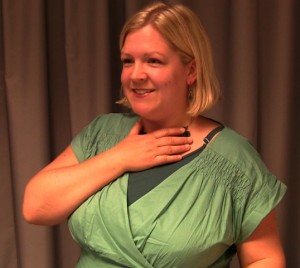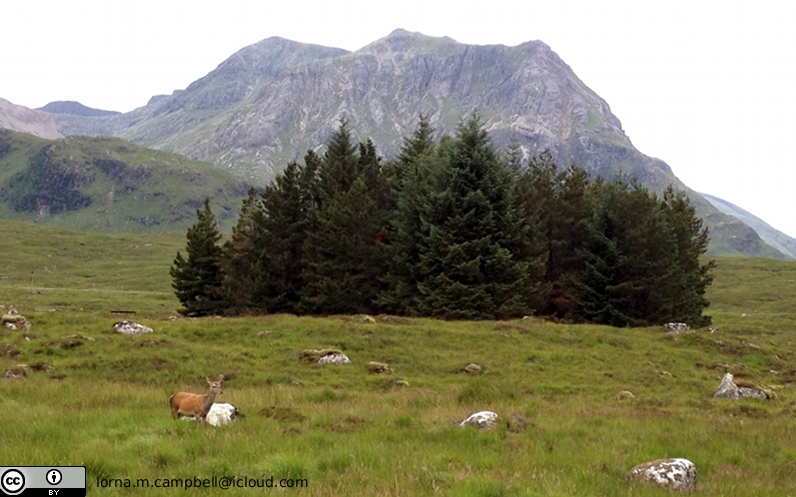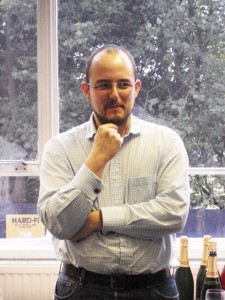Yesterday, David Kernohan challenged the ukoer community on the oer-discuss mailing list to write a blog post in response to a spectacularly wrongheaded Educasue post titled;
Ten Years Later: Why Open Educational Resources Have Not Noticeably Affected Higher Education, and Why We Should Care
I had read the post the previous day and had already decided not to respond because tbh I just wouldn’t know where to begin.
However since David is offering “a large drink of the author’s choice” as the prize for the best response, I have been persuaded to take up the challenge. Which just goes to show there’s no better way to motivate me folk then by offering drink. (Mine’s a G&T David, or a red wine, possibly both, though not in the same glass.)
I am still at a loss to offer a serious critique of this article so in the best spirit of OER, I am going to recycle what everyone else has already said. Reuse FTW!
The article can basically be summarised as follows:
It’s 10 years since MIT launched OpenCourseware. Since then OERs have FAILED because they have not transformed and disrupted higher education. List of reasons for their failure: discoverability, quality control, “The Last Mile”, acquisition. The solution to these problems is to built a “global enterprise-level system” aka a “supersized CMS”. And look, here’s one I built earlier! It’s called LON CAPA.
PS. “The entity that provides the marketplace, the service, and the support and keeps the whole enterprise moving forward is probably best implemented as a traditional company.”
I should point out that I am not familiar with LON-CAPA. I’m sure it’s a very good system as far as it goes, but I don’t think a “global enterprise-level system” is the answer to anything.
David Kernohan himself was quick off the mark when the article first started circulating, after tweeting a couple of its finer points:
“OERs have not noticeably disrupted the traditional business model of higher education”
“It is naïve to believe that OERs can be free for everybody involved.”
He concluded:
So the basic message of that paper is “OER IS BROKEN” and “NEED MOAR USER DATA”. Lovely.
Because, clearly, if we can’t measure the impact of something it is valueless.
Which is indeed a good point. Actually I think there are many ways you can measure the impact of OER but I’m not at all convinced that “disrupting traditional business models” is the only valid measure of success. After all, OER is just content + open licence at the end of the day. And we can’t expect content alone to change the world, can we?
This is the point that Pat Lockley was getting at when he tweeted:
My Blog will be coming soon “Why OER haven’t affected the growth of grass”
Facetious perhaps, but a very pertinent point. There has been so much hyperbole surrounding OER from certain quarters of the media that it’s all too easy to say “Ha! It’s all just a waste of money. OER will never change the world.” Well no, maybe not, but most right minded people never claimed it would. What we do have though, is access to a lot more freely available (both gratis and libre) clearly licenced educational resources out there on the open web. Surely that can’t be a bad thing, can it? If nothing else, OER has increased educators’ awareness and understanding of the importance of clearly licencing the content they create and use, and that is definitely a good thing.
Pat also commented:
I’m just tired of OER being about “research into OER”. The cart is so far before the horse.
Which is another very valid point. I probably shouldn’t repeat Pat’s later tweet when he reached the end of the article and discovered that the author was pimping his own system. It involved axes and jumberjacking. Nuff said.
Jim Groom was similarly concise in his criticism:
“For content to be truly reusable and remixable, it needs to be context-free.” Problematic.
What’s the problem with OER ten years on? Metadata. Hmmm, maybe it is actually imagination, or lack thereof. #killoerdead
While I don’t always agree with Mr Groom, I certainly do agree that such a partial analysis lacks imagination.
As is so often the case, it was left to Amber Thomas to see past the superficial bad and wrongness of the article to get at the issues underneath.
“The right questions, patchy evidence base, wrong solutions. And I still think oer is a descriptor not a distinct content type.”
And as is also often the case, I agree with Amber wholeheartedly. There are actually many valid points lurking within this article but, honestly, it’s like the last ten years never happened. For example, discussing discoverability, which I agree can be problematic, the author suggests:
The solution for this problem could be surprisingly simple: dynamic metadata based on crowdsourcing. As educators identify and sequence content resources for their teaching venues, this information is stored alongside the resources, e.g., “this resource was used before this other resource in this context and in this course.” This usage-based dynamic metadata is gathered without any additional work for the educator or the author. The repository “learns” its content, and the next educator using the system gets recommendations based on other educators’ choices: “people who bought this also bought that.”
Yes! I agree!
Simple? No, currently impossible, because the deployment of a resource is usually disconnected from the repository: content is downloaded from a repository and uploaded into a course management system (CMS), where it is sequenced and deployed.
Erm…impossible? Really? Experimental maybe, difficult even, but impossible? No. Why no mention here of activity data, paradata, analytics? Like I said, it’s like the last ten years never happened.
Anyway I had better stop there before I say something unprofessional. One last comment though, Martin Hawksey pointed out this morning that there is not a single comment on the Educause website about this article, and asked:
Censorship? (That’s the danger of CMSs configured this way, someone else controls the information.)
I can’t comment on whether there has been censorship, but there has certainly been control. (Is there a difference? Discuss.) In order to comment on the Educause site you have to register, which I did yesterday afternoon and got a response informing me that it would take “several business hours” to approve my registration. I finally received the approval notification at nine o’clock at night, by which point I had better things to do with my time than comment on “global enterprise-level systems” and “supersized CMS”.
So there you have it David. Do I get that G&T?
ETA The author of this article, Gerd Kortemeyer may just have pipped us all to the G&T with a measured and considered defence of his post over at oer-discuss. While his e-mail provides some much needed context to the original article, particularly in terms of clarifying the specfic type of educational institutions and usage scenarios he is referring to, many of the criticism remain. It’s well worth reading Gerd’s response to the challenge here. Andy Lane has also written a very thoughtful and detailed critique of the article here which I can highly recommend.


 In addition to supporting the OER Programmes John has also maintained a watching brief on the Learning Registry project in the US. John has been instrumental in communicating the potential impact of this initiative and disseminating regular updates to JISC and the wider community.
In addition to supporting the OER Programmes John has also maintained a watching brief on the Learning Registry project in the US. John has been instrumental in communicating the potential impact of this initiative and disseminating regular updates to JISC and the wider community. 